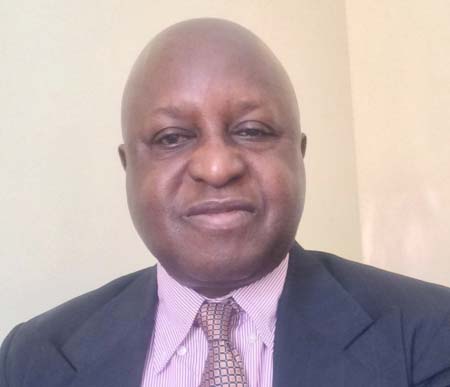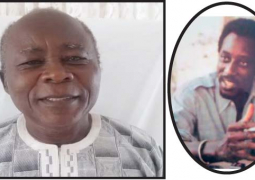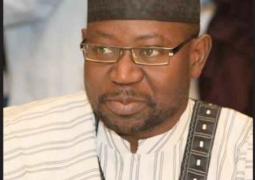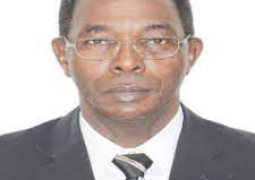
To put things into perspective before independence, the Gambia was divided into two regions the colony and the protectorate. The people in the protectorate were grossly marginalized they were not considered when it comes to social, political, and economic opportunities.
Due to the alienation of the Protectorate, the Protectorate People Society (PPS) was formed to help them in their objectives to fight against the marginalization of the Protectorates. The first Chairman of the Society was Mamadi Sangia and had their first meeting on 30th December 1956, in the house of Mamadi Sagnia at number one grant street. They quickly register the PPS at the government welfare office. Some people were not optimistic that they would be able to unify the protectorates due to the serious rivalry between Sanjally and some other elders to an extent many people it was practically impossible to put Sanjally Bojang and Ebrima Njie in one room.
The PPS, unlike other small groups they opened membership to all the protectorate people living in Bathurst, they were more focused on recruiting young and educated peoples from the protectorates mainly junior civil servants.
The peoples behind such a loadable idea were Mamadi Sangia health inspector from Kantora, as chairman, Bakary Sidibeh Vice Chairman, Baro Sanyang court interpreter from Kiang, B.O Fofana Secretary, M. F Singhateh, Kebba Marenah, L.B Mboge, Aja Fanta Basse Sangia who was among the most prominent and outstanding women.
The formation of the PPS happened at a time when the colonial masters were already contemplating amending the country’s constitution. The PPS members quickly tried to engage all the young educated youths to see how best they could use their society to ensure the interest of the Protectorate People before the purported constitutional amendment.
Already the protectorate people lost hope and confidence in the existing political parties due to their negligence for the interest of the protectorates peoples. The young educated PPS Militant deliberately opted for democratic procedures in its internal organization to ensure all positions are opened to all its members instead of conforming to the traditional approach hence that time the oldest in most organizations mostly become the leader automatically.
The Late Sir Dawda, who was admitted in protectorate people society in his maiden speech in one of their meetings, strongly suggested that what has been accomplished up to that point, in terms of unifying the Protectorate People, should be nurtured to serve as a basis for a political party. His ideas were unanimously welcomed, especially among the younger PPS members.
To be precise this lead to preparation for the party’s emergence when the Chief's conference opened in Basse in 1959. Before the launching of the parties a terse declaration on the founding of the Protectorate People’s Party and describing its broad objectives, was drafted and dispatched. Through emissaries led by Jombo Bojang, Famara Wassa Touray, Saja Mboge just to name a few to Basse to be publicized and explained there. At this gathering in Basse the party elders, members, and the executive unanimously agreed to found the PPP on the 14th February 1959.
However, they realized that to challenge the urban-based parties while implementing their extraordinary programs, a capable and well-educated individual must lead the party. Hence, the leadership went on hunting for a party leader. One of the people in consideration was Sir Dawda Jawara, then a veterinary surgeon. While Sir Dawda was at home in Abuko a PPP delegation, including Sanjally Bojang, Bakary Fofanah, and Madiba Janneh showed up to discuss the possibility of him leading the new party. Sir Dawda, shocked by the enormity of the request, took a long pause to get his thoughts in line. After a long pause, Sir Dawda finally responded that he would need time to consider their request and to consult with his family. After extensive consultation with his family and friends, Sir Dawda accepted the honorable call of his people to lead them. He resigned from his post as the country’s only veterinary surgeon on February 4, 1960, to become the leader of the PPP.
It should be noted that at the time, the protectorate people are not allowed to vote. The PPP called for a constitutional amendment called for the enfranchisement of the protectorate based on universal adult suffrage. In contrast, the established political parties proposed that the Protectorate representation in the legislature should be simply drawn from an enlarged electoral college to be composed of community and group leaders. Such a proposal was rejected by the PPP, the PPP when further to also sought to ensure that any new constitution to be adopted would provide guarantees for the promotion of protectorate interests for example by requiring candidates for protectorate constituencies.
Sir Dawda knew the extraordinary challenges that lay ahead. He knew that before the PPP could change the political dynamic of the country it must be transformed into an all-inclusive party. In 1960, through the suggestion of the party’s new leadership, the name of the party was changed from the Protectorate People’s Party to the People’s Progressive Party (PPP) to make it inclusive and representative of the entire nation. The mission of the PPP was to improve the lives of the protectorate people by bridging the divide that separated the colony and the protectorate thereby create a single unified nation in which all people can strive to advance their own lives based on their abilities. At the core of the PPP’s vision was a country founded on democratic principles, with self-governance and self-reliance as its mantle.
To fast track. Barely after a year, the PPP broke ranks from older establishment parties by calling for independence now in a historic 1960 manifesto of the PPP. Just four years after it came into being, the party achieved internal self-government for this country in 1963. By 1965, the PPP had achieved for the Gambia full status as a sovereign independent state with a voice in the councils for the world.
The country has been a republic with an executive President since 1970. From 1970 to 1992 Five general and presidential elections have taken place during this period, all conducted in an atmosphere of tranquility, freedom, and fairness to a degree unheard of in most of Africa. The PPP observes and pursues a policy of open multiparty democracy, rule of law, and respect for Human rights.
Our party believes in persuasion rather than coercion, through conviction rather than fear. Through a genuine determination to ensure a just, orderly and modern society.
Today, the PPP is still very much alive many thanks to the late Landing Jallow Sonko, Hon. Omar Amadou Jallow alias OJ, late Hon. Kebba Jawara, Late LB Mbodge, Hon. Yaya Ceesay, late Kama Badjie, late Ousainou Njie, Hon. James Gaye, Hon. James Gomez just to name a few, played a crucial role during the difficult years under the military dictatorship to reestablish and reorganized the Party.
On this note, we are paying homage and praying for all our founding members for their sacrifice to save us from perpetual colonialism and peacefully achieving independence for all Gambians to become sovereign citizens. We thank all Gambians and friends of the Gambia for the trust and confidence they have in PPP.
HAPPY 62ND BIRTHDAY TO THE PPP!!! On the 26th February 2021, the PPP will be having a cultural event in celebration of our birthday at Brikamaba Youth Center on the eve of our national congress, all are invited.
Signed
Hon. Kebba E Jallow
Interim Secretary General and Party Leader.
Read Other Articles In Opinion
Communities key to zero out-of-school children in The Gambia
May 23, 2023, 1:39 PM




